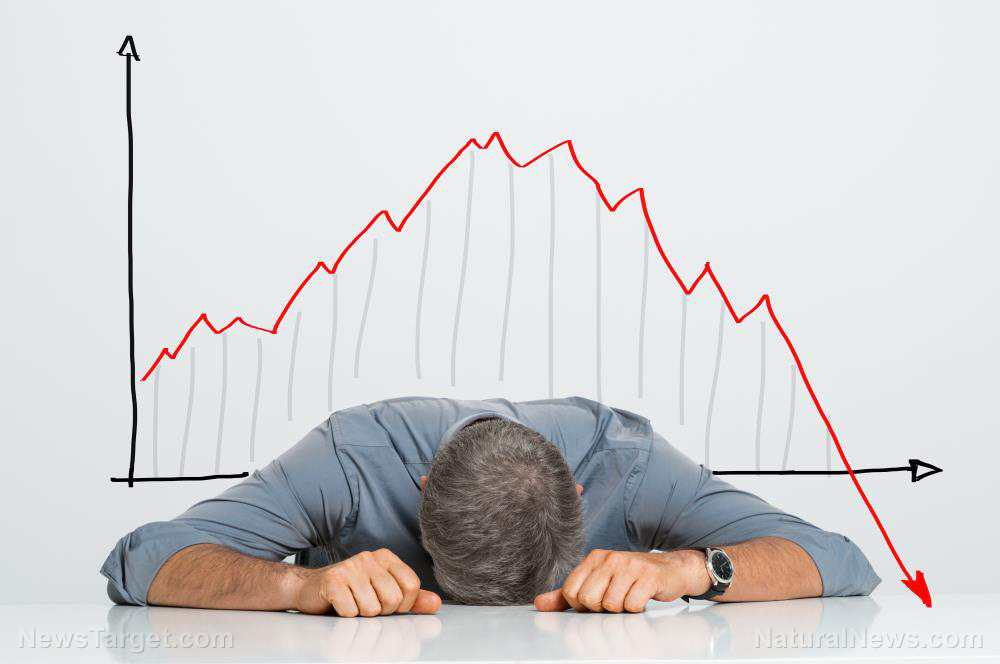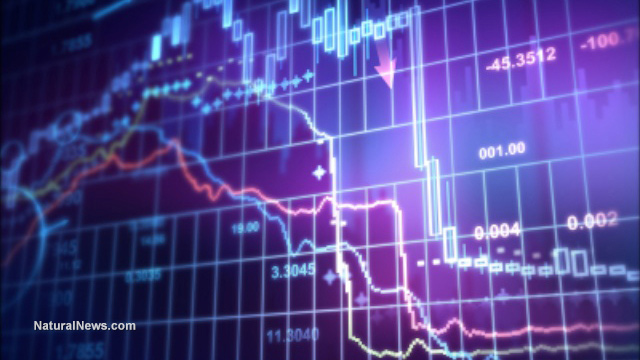Moody’s demotes U.S. banking system to “negative” rating citing “rapidly deteriorating operating environment”
03/15/2023 / By Ethan Huff

Prior to the collapse of Silicon Valley Bank (SVB), Moody’s Investors Service rated the United States banking system as “stable.” Since that time, Moody’s has downgraded American banks to “negative” status, citing a “rapidly deteriorating operating environment.”
Despite regulators’ “best efforts to shore up the industry,” to quote CNBC‘s Jeff Cox, America’s financial foundation is crumbling – which is no surprise seeing as how it was always a Ponzi scheme house of cards built on deception and bad faith.
One of the “big three” rating services, Moody’s is setting the stage for the final and inevitable collapse of America’s banking sector. One might even say that the banking sector has already collapsed, even though the powers that be are still hiding the wreckage from public view as much as possible.
“We have changed to negative from stable our outlook on the U.S. banking system to reflect the rapid deterioration in the operating environment following deposit runs at Silicon Valley Bank (SVB), Silvergate Bank, and Signature Bank (SNY) and the failures of SVB and SNY,” Moody’s said in a report.
(Related: According to fake president and demented circus clown Joe Biden, the American banking system is doing just fine.)
Will it take months, weeks, or just days for the U.S. banking sector to collapse?
The announcement from Moody’s came after the entity warned that it was either going to downgrade or recommend downgrading some seven institutions thus far. In addition to SVB, SNY, and Silvergate, other institutions that are under review for potential downgrades include First Republic, Intrust Financial, UMB, Zions Bancorp, Western Alliance, and Comerica.
There are likely many more banks with massive unrealized losses that are also on the hook since they purchased Treasury bonds and other government debt when interest rates were near-zero. Since that time, the Federal Reserve’s Jerome Powell has progressively hiked rates, sending the value of these bank bonds into a downward tailspin.
“Banks with substantial unrealized securities losses and with non-retail and uninsured U.S. depositors may still be more sensitive to depositor competition or ultimate flight, with adverse effects on funding, liquidity, earnings and capital,” Moody’s report further warns.
Despite this downgrading and the canary in the coal mine that it represents, numerous bank stocks rose this week. This is because the Wall Street casino is now completely detached from reality – and has been detached from reality for many, many years.
You can be sure that at some point, the Ponzi scheme will unravel for the world to see. They can only keep the ruse going for so long before the entire thing unwinds – but in the meantime, the circus will continue.
“We expect pressures to persist and be exacerbated by ongoing monetary policy tightening, with interest rates likely to remain higher for longer until inflation returns to within the Fed’s target range,” Moody’s further indicated.
“U.S. banks also now are facing sharply rising deposit costs after years of low funding costs, which will reduce earnings at banks, particularly those with a greater proportion of fixed-rate assets.”
Even though the United States technically entered a recession last year using standard metrics and methodology, the Biden regime changed the definition of recession to exclude the current economic crisis. Moody’s estimates that a “recession” according to Biden will hit the country later this year.
“Biden may not know it yet, but he is a designated fall guy for bankers,” one Natural News commenter suggested.
“The Federal Reserve has been shorting the U.S. economy since its inception in 1913. The Federal Reserve has engineered one catastrophe after another. The Federal Reserve should have been shut down like a hundred years ago.”
Will the America we know today still be recognizable a year from now? Find out more at Collapse.news.
Sources for this article include:
Submit a correction >>
Tagged Under:
banking, banks, big government, bubble, collapse, credit, debt bomb, debt collapse, economic collapse, economic riot, economy, Federal Reserve, finance, finance riot, market crash, money supply, Moody's, rating, risk
This article may contain statements that reflect the opinion of the author
RECENT NEWS & ARTICLES
COPYRIGHT © 2022 EconomicRiot.com
All content posted on this site is protected under Free Speech. EconomicRiot.com is not responsible for content written by contributing authors. The information on this site is provided for educational and entertainment purposes only. It is not intended as a substitute for professional advice of any kind. EconomicRiot.com assumes no responsibility for the use or misuse of this material. All trademarks, registered trademarks and service marks mentioned on this site are the property of their respective owners.


















